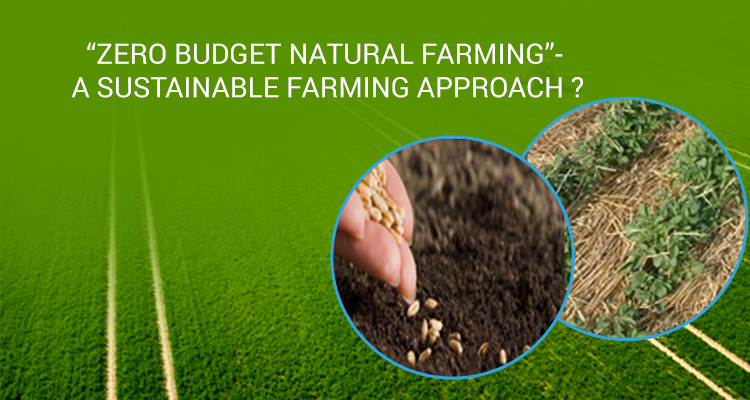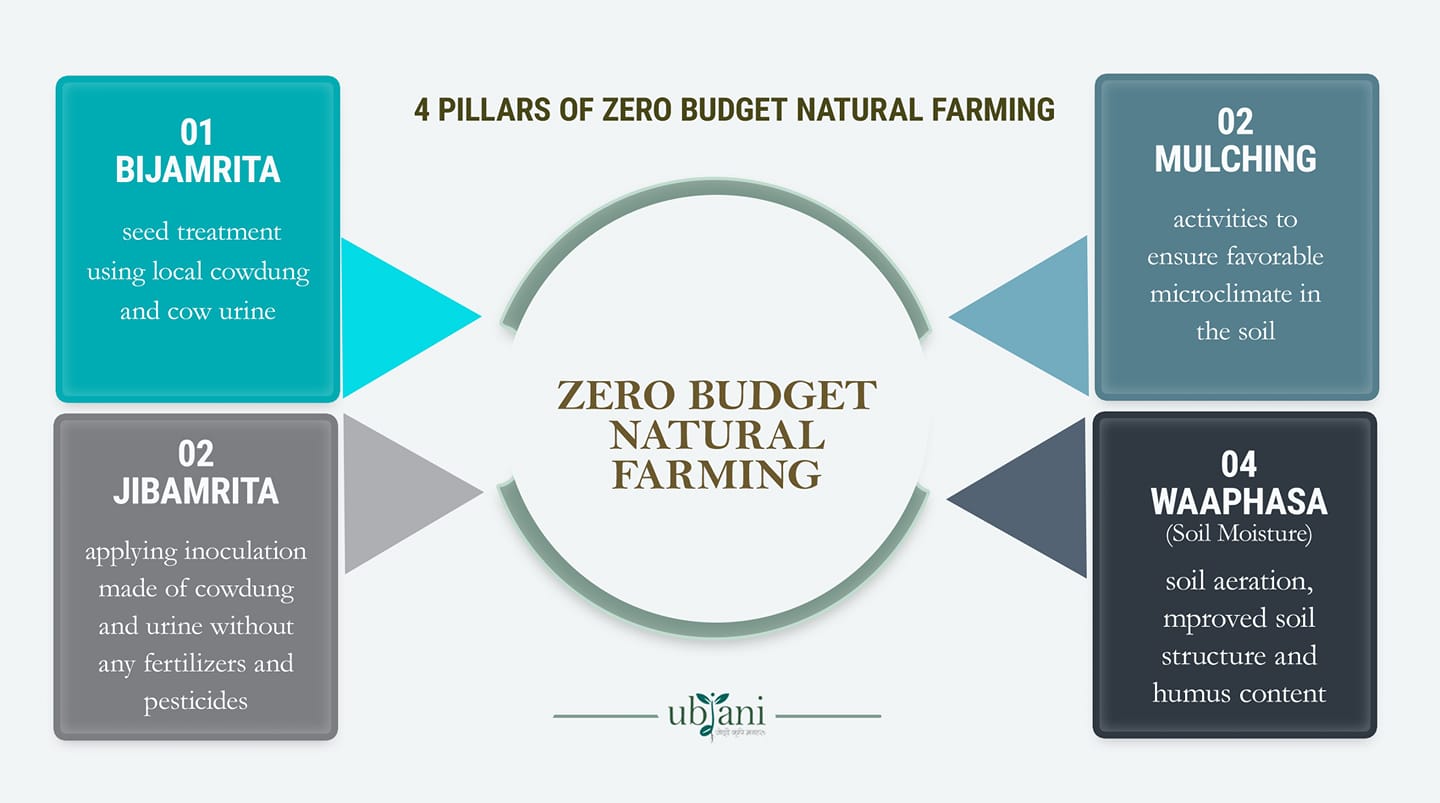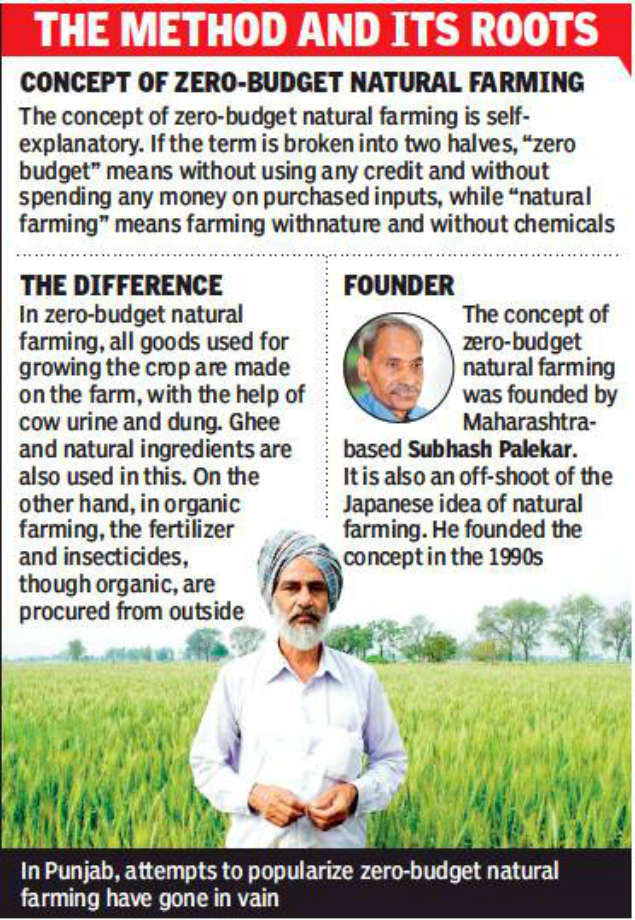Description

Disclaimer: Copyright infringement not intended.
Context
- Government is implementing Bhartiya Prakritik Krishi Padhati (BPKP) introduced during 2020-21 as a sub scheme of Paramparagat Krishi Vikas Yojana (PKVY) for the promotion of traditional indigenous practices including Natural Farming to bring down the input costs.
About ZBNF


Why is ZBNF necessary?
- From the (NSSO) National Sample Survey Office data, 70% plus of farmers spend more they earn, and most farmers have debt.
- The indebtedness level is around 90% in states like Andhra Pradesh and Telangana, where each household has an average debt of Rs 1 lakh.
- To achieve the promise of the central government to double the income of farmers by 2022, one factor being considered is natural farming methods zero budget natural farming.
Why is ZBNF important in a nutshell
- Farmers depend on loans.
- The economic survey has highlighted the ecological benefits.
- Cost of farming inputs is rapidly increasing.
- The number of farmer’s suicide cases is growing continuously.
- The demand for safe food increased among customers.
- Unstable market price.
Advantages of Zero Budget Natural Farming
- Zero budget natural farming reduces the initial cost of farmers.
- Farmer’s income automatically increases.
- The soil ecosystem improves.
- Cow dung adds soil value. It is full of nutrients value and available locally.
- Bacteria of cow dung decompose the organic matter in soil and make soil for the plants.
- It requires less electricity and water.
- ZBNF improves the productivity of the soil.
- It decreases the disease attack risk on the crop.
Disadvantages of Zero Budget Natural Farming
- This farming method used in some parts of India.
- The type of farming being debated, and there is not much scientific research under evaluation.
- This farming technique used in negligible areas.
Zero Budget Natural Farming V/S Organic Farming
|
S/N
|
Zero Budget Natural Farming(ZBNF)
|
Organic Farming
|
|
1.
|
No external fertilizers are used in ZBNF.
|
Organic fertilizers such as compost, cow dung, and vermicompost are used in organic farming.
|
|
2.
|
There is no tilling and no mixing. It requires natural ecosystems.
|
It requires basic agro methods like tilling, plowing, mixing, etc.
|
|
3.
|
It is low-cost farming due to the local biodiversity.
|
It is expensive due to the need for bulk manures.
|
https://www.pib.gov.in/PressReleasePage.aspx?PRID=1810917













